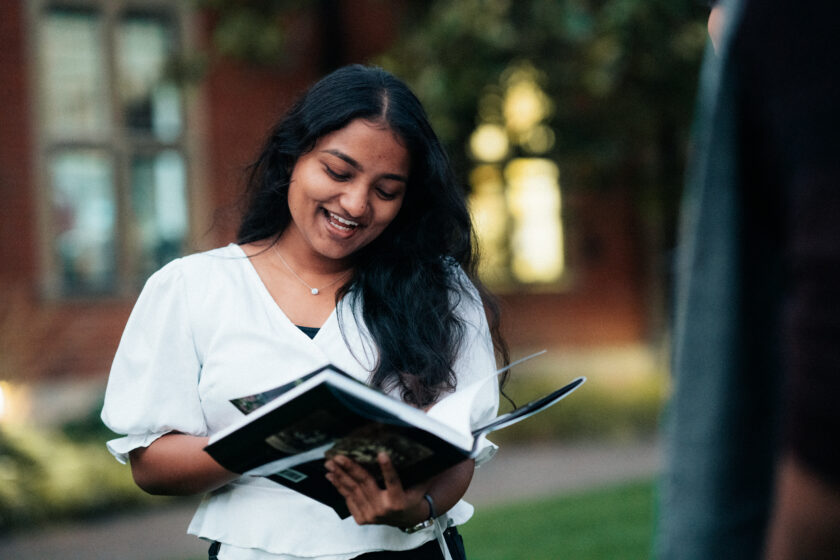Ritheka Sundar is an Oxford-Gopal Subramanium scholar currently reading for her MSc in Economics for Development. A first-generation student, Ritheka is committed to building an empathetic society with reduced poverty, so that people from marginalised backgrounds in India have increased access to better opportunities and a brighter future.
Could you tell us a bit about your current research interests around women and agriculture under climate change? What inspired this interest and why do you think it is important?
Through my previous research [Ritheka received her BA in Economics from Chennai’s Stella Maris College], I understood that women’s lack of access and ownership of agricultural land continues to be a crucial constraint in farming. Their access is shaped by complicated legal procedures, posing difficulties in accessing extension and advisory services related to farming.
Climate change is a prevailing threat to the entire world but, more so, to the vulnerable communities such as women farmers in developing countries. Nevertheless, I believe that women farmers should not be seen as mere vulnerabilities, but rather as agents of change who are capable of designing responses. For this, they need to be provided with mechanisms that support their innovations in the face of climate change, and this can aid in the creation of sustainable communities.
Given that marginalised communities in India bear the brunt of several environmental issues and this is only exacerbated by the effects of climate change, I am also interested in working at the intersection of caste and climate change.
Have you faced any specific challenges in pursuing higher education abroad?
Being able to join a top institution such as Oxford University was a dream of mine, but, more importantly, it is an ode to my parents, who were not able to easily access education, to say the least. As a first-generation student, I have experienced what it means to not have access to certain resources that may be crucial but easily available only to those with social capital, such as upper castes in India.
I am grateful to have had the support of my immediate family to pursue a master’s degree and their story inspires me both to acquire knowledge within my field and extend support to students from marginalised and non-traditional backgrounds.

You have worked with organisations to improve higher education access of Indian students from marginalised social and economic backgrounds. Could you tell us a bit about the kinds of obstacles faced by these students and what can be done to mitigate them?
Students from marginalised communities are certainly at a disadvantage as opposed to those with social capital, since there is disproportionate access to key resources in the higher educational space. Students often find the process nerve-wracking and confusing especially when they do not have the right help. It is also very easy to give up on oneself when one does not have a strong support system. I believe it is rather important for key players such as universities to set up a system to support and encourage students from marginalised backgrounds from the outset. At the same time, students who have had access to quality educational resources should do their part in imparting knowledge. In this regard, a few organisations such as Bahujan Economists, Project EduAccess, Eklavya, and Accepted Consulting LLC, are actively bridging the accessibility gap by providing support to students from marginalised or nontraditional backgrounds.
Has your experience as a student in Oxford been significantly different from your previous experience in India? How have you managed the transition?
My experience so far has been extremely different from my undergraduate education in India. Firstly, it is not simple to adapt to a new culture, unpredictable weather and different education system – all at once! However, I think the differences do make the experience worthwhile. The course is certainly challenging, but I think academic challenges are required to progress in the field. During stressful times, my classmates and I work together as a group and support each other through the process. As my professors keep reiterating, the best resources I’ve found are indeed my classmates – it’s wonderful to listen to a variety of perspectives on a regular basis. I’ve also met some really great people at Somerville College and, after a long day’s study, it’s a good laugh with them that washes my worries away.